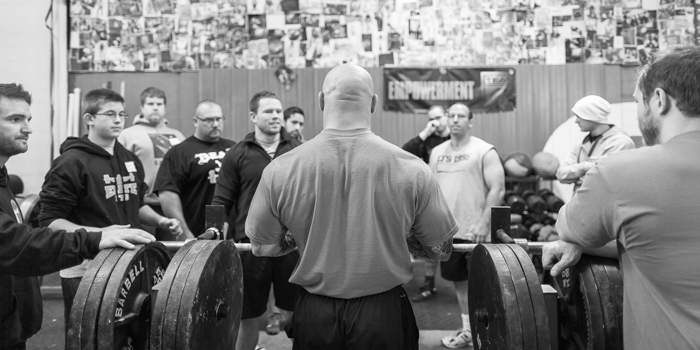
Just over a year ago, I wrote an article titled What is Really Wrong with Strength and Conditioning. The article received a lot of positive feedback, which I am grateful for.
The overall message of the article was simple in stating but a bit more complicated in explanation. In basic terms, no one has figured out how to objectively evaluate the strength & conditioning coach.
One regret I have about the original article is that I didn't follow the 3 essential components of article writing in my opinion. Specifically, the third. The three questions that should be answered with every article are:
- Why is this topic important (why should I care)?
- Who are you to tell me (your qualifications)?
- What can I get from this (teach me)?
My solutions to the problem were vague and not comprehensive. They could serve as a good start to achieving a better profession, but they weren't concrete enough. Maybe, stating there is a problem that I felt no one was identifying was the main purpose of the article. Maybe shifting the mindsets of coaches to thoroughly think about the underlying issues causing some of the superficial causes was enough to add value. Regardless, there was unfinished business from a journalistic point of view.
Before exploring some possible solutions, let's look at where the problem lies in our industry. More specifically, we must first look at the climate and culture of the profession in which coaches are struggling to find a career. In so many words, the state of the industry outlines the issues themselves.
The State of the Industry
In a nutshell, there are some specific elements that compound into a recipe for frustration for coaches trying to break into the field.
- There are way more strength and conditioning coaches than strength and conditioning jobs.
- Most young coaches have expectations that do not coincide with reality.
- The journey of becoming a strength and conditioning coach is a painstakingly long process with no direct path up the ladder.
- With coaches moving from one unpaid internship to another and in some instances, directors requiring Masters degrees for consideration of those unpaid internships; the experience to income ratio is grossly misaligned.
- Strength and conditioning (at least at the college level) has become a battle of attrition and more to do with survival. There are a lot of coaches simply "holding on" as long as they can afford to.
For a more detailed look at the almost mandatory process of internships, check out: Why You're Still an Intern.
Why Things Have Not Improved for Strength Coaches
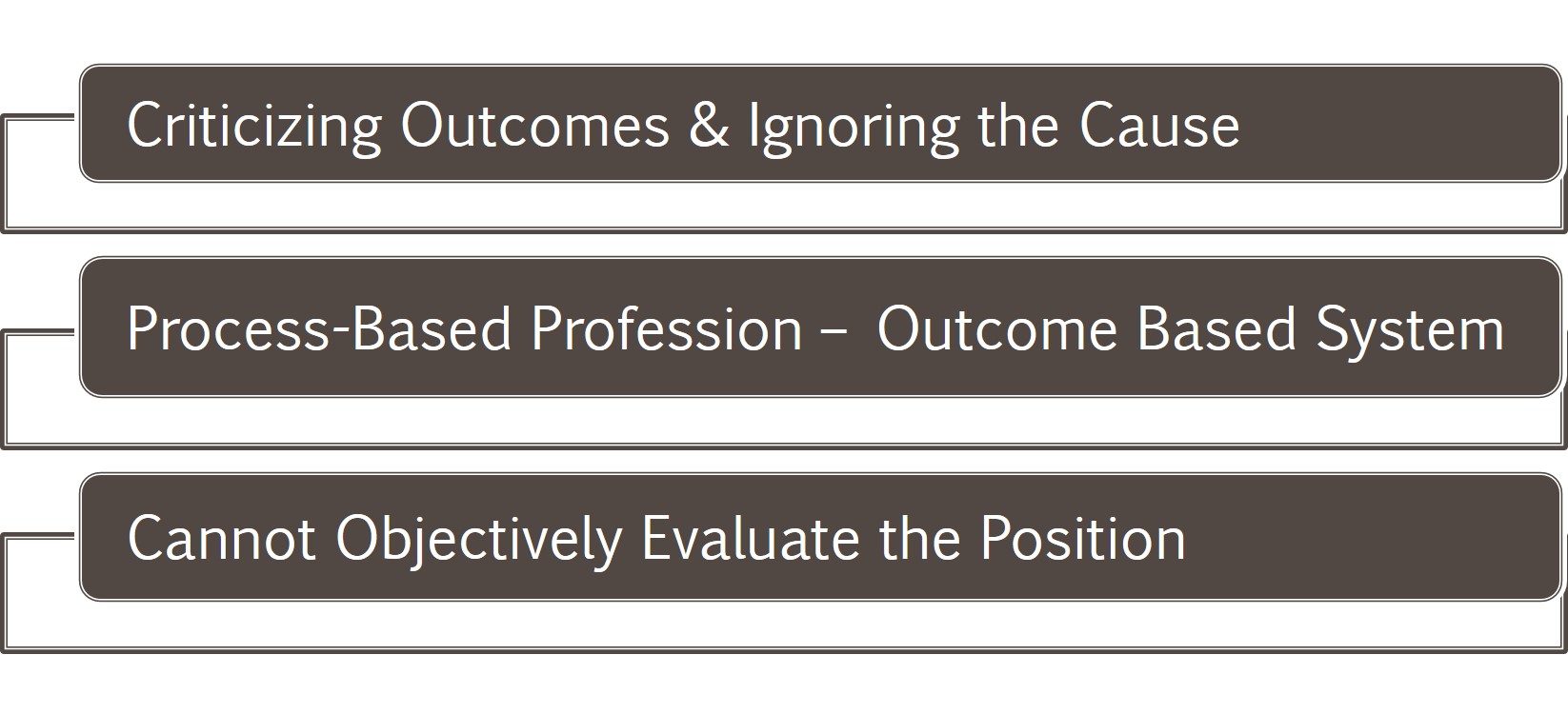
There are three distinct reasons I feel things have not improved for aspiring strength and conditioning coaches. First, our criticisms of the profession are targeted at the outcomes and not the cause. Second, strength and conditioning, no matter how objective you try to make it, is still a process-based job in an outcome-based profession. Finally, there is not a discernable method to objectively evaluate a strength and conditioning coach.
Criticizing Outcomes and Ignoring the Cause. Strength and conditioning professionals often climb on their soapboxes to preach about how there aren't enough strength jobs, strength coaches don't get paid enough, there is no job security in the profession, and no one will advocate for them. Although all of these points may be true for most coaches, the problem is all of those points are the results of the underlying issues we have failed to identify and address.
Process-Based Profession in an Outcome-Based System. There is not a college or high school strength coach that will tell you they have chosen this profession because they want to see freaky weight-room testing numbers or want to win games. Unless they are a duel-role sports coach or own a private facility, all strength coaches coach so they can impact young people in a positive way. If they are not in it for that, they should be.
Cannot Objectively Evaluate the Position. This is why strength coaches leave the profession and administrators don't how to quantify their value. The people that hire strength coaches (other than a strength coach hiring a strength coach) do not have the experience to identify whether a strength coach is doing a better job than his/her predecessor.
The Formula
This is the formula that has been adapted from Lencioni's 3 Signs of a Miserable Job. The problem with the profession is strength and conditioning coaches are not valued for their efforts and impact they have for numerous reasons. The multitude of reasons can be condensed to two major factors.
Over-Saturation. How many coaches would take your job for less money if you left?
+
Immeasurement. How do you know whether you are doing a good job or not?
=
Devaluation. When administrators feel anyone can do the job and the job does not have a significant enough impact on the outcome.
The Four Frustrations of a Strength Coach (YSCC)
I have had the pleasure of being a part of round-table discussions at the CSCCa National Conference and the NSCA Coaches Conference presented by the YSCC. Coaches like Bryan Mann, Adam Feit, and Megan Young put a tremendous amount of effort into these events. The round-table discussions were invaluable networking opportunities for young coaches and provided semi-structured and productive dialogue. One of the discussion points explored at these round-tables were four frustrations of a strength coach.
Job Security. Who is really doing the hiring and firing? Who is my job tied to? Am I going to have to load up the U-Haul if we have a bad year?
Sports Coach Relationships. Nothing is more nerve-racking to a strength coach then when one of their sports gets a new head coach. For more strategies on dealing with sport coaches, check out this free webinar: Why Communication is the Key to Coaching.
Commitment to Reward Ratio. How much time will I need to commit without advancing professionally? How long can I withstand "the grind" of the strength coach lifestyle until I feel appreciated? How many times will I set my alarm for 4:30am realizing I need to find another part-time job to make ends meet. The reality will set in when you realize how many other underpaid strength coaches are fighting for relevance with the same schedule you have.
Inter-Personal Relationships. Strength and conditioning is a profession in which you cannot choose where you would like to live geographically. The hours will be long and inconvenient compared to many professions and the day-to-day pressure of the job will not allow you to leave the job at home... when you are home. So, add in a significant other to this mix and you will find out pretty quickly from them, the meaning of selfless commitment.
- Geographic Stress: You either need to find a support system in whatever college town you drag your partner to or adapt a solid long-term relationship model. Bottom line, you will need an end-game or the stress will add up.
- Schedule Stress: Unless your partner works a similar schedule, you both may be "ships passing in the night." Add children to this equation and they may feel like a single mom or dad. You'll need to schedule time together or you could grow further apart.
- Responsibility Stress: For the limited time you are at home, be at home. The issue worsens when you spend your waking hours mindlessly search for the next training program or drill to take your program to the next level. There needs to be balance or you will let a stressful day, stress you out all over again.
How We Have Tried to Evaluate Our Position
Before we realistically look at possible ways coaches can be universally and objectively evaluated (which has taken me several years to come up with any) let's look at how you probably cannot evaluate strength coaches. This is from the article What is Really Wrong with Strength and Conditioning.
1. By Maxes
Some of these are going to be so painfully obvious that if you don't agree with their unworthiness, then you are the problem.
Listen, I get that getting your athletes strong may be the most important thing we do as "strength" coaches. But, you realize that measuring a strength coach's value on what his/ her players can lift in the weight room is like evaluating a teacher on their ability to teach reading comprehension by grading how well their student's spell.
The simple facts that all players arrive into your program at different levels, progress at different rates, respond differently to the same stimulus, and all will make progress no matter what the program entails should be proof enough that your athletes' strength levels are not about you.
2. By Players Going the Next Level
This is not indicative of how good of a strength coach you are. In order to convince me that you as the strength coach is responsible for the high school player going DI or the college player making the Olympics or a professional team; you have to answer these questions. Let's use a player who earned a D1 scholarship that you are taking the credit for as our example.
- Would that player not have been a D1 player without training with you?
- If that athlete's success is because of your training, why aren't all of your athletes Division 1 players?
Just as the strength coach shouldn't take credit for their athletes' success, they shouldn't take the blame for a below-average recruiting class, the athlete's work ethic, or poor play-calling. This is a poor factor to judge a strength coach on.
3. By improvement
This goes along with #1. As we all know, athletes with younger training ages will make the most improvements in terms of strength. Is player development almost as important as recruiting? Absolutely. But because athletes start at different levels and their exposure to training depends on numerous factors, this is not a reliable measuring tool.
When a coach brags about how much their players have improved they are doing one of two things.
- Fighting for their own jobs.
- Forgetting the basic scientific process that says there is no way they can account for the fact whereas another program could have yielded greater results that they weren't using.
4. By injury rates
As a strength coach, you need to take pride in the reduction of injuries amongst your teams. Having zero non-contact soft-tissue injuries is an attainable goal for any team. But, just because an injury happens, it is not indicative of the programming of the strength coach.
When I arrived at Army, the women's soccer team had 3-4 ACL injuries that first Spring. Was that my fault? Whether it was or not I blamed myself and looked hard at our programming. Maybe implementing as much posterior chain work that early in the off-season was a mistake. Addressing a prominent injury potential so aggressively may have been adding to the fatigue. The next year we had none. That winter, the wrestling team had a few. Again, I took a hard look at programming and got some feedback on how those injuries happened. No amount of pre-hab or posterior chain work can prevent an ACL tear when an opponent grabs a leg and wrenches it while the foot is stuck.
The point is, there are many factors when looking at injuries and is difficult to quantify the cause. There is a long history that you may not be aware of, external factors, practice habits, treatment plans, etc. All can make the root cause waters very cloudy.
5. By on the field or court performance
Be careful about taking credit for on the field performance of your athletes. Remember the number one factor that predicts success on the field or court is the ability to play that particular sport. I will admit we have a large problem with strength coaches taking credit for their athlete's success outside the weight room. But, that pendulum shouldn't swing the other direction so far as to blame strength coaches for inadequate performance.
Understanding the difference between physical, mental, tactical, and technical preparation is something strength coaches are getting well versed at. Unfortunately, not all sport coaches are.
6. Sport coach approval
This may be a prelude into what are some factors that could be used for coach evaluation. This, however, also depends on the sport. Football and basketball coaches often hire their own strength coaches. Like my guy Chris Bates told me, they are "pre-approved." They get to choose their own and evaluation should be nothing more than honest conversation. You hired the guy. Let him do his job.
On the other hand, most Olympic Sport strength coaches do not have say in the hiring on an assistant strength coach. That decision is made by the head S&C coach with some feedback from a "committee." Most sport coaches don't have a say in who trains their teams. That being said. Shouldn't they have a say in the evaluation process? The problem falls back to "How?" What is the basis of that sport coach's assessment of the strength coach. What are they basing it off of?
If I had 23 sports then I would have 23 different cultures and 23 different opinions of what a strength & conditioning coach should be toward their teams. That is 23 different interpretations of what the strength coach is worth to the program.
7. Player feedback
At Denison, athlete evaluations (along with student evaluations for off-season training via phys ed classes) were valued at a very high (sometimes to high) level. Every semester, I would get a few negative comments that totally contradicted each other. We lifted "too heavy" we didn't lift enough, the workouts were too hard, too easy, too long, not long enough. It made me realize that not all athletes were as invested and it was my job to ensure they had the best opportunity to succeed.
Once I stopped trying to please everyone, the reviews got better and more predictable. We made sure that if someone was going to complain about training, they were going to complain that it was too hard, too intense, too in-depth, etc. Funny thing is, I never had anyone ask me to "take it easy" on the athletes after reading the evaluations. Point is, those evaluations couldn't accurately portray our training program. Most athlete questionnaires asked:
- Is the instructor/ coach knowledgeable about the content?
- Did the instructor/ coach increase your interest in the subject?
These are questions that are a.) difficult for the athlete to answer or b.) out of context.
I never see questions like:
- Do you feel stronger, faster, more recovered?
- Do you look forward to training?
The answers would be subjective anyway. But, those may give the strength coach the best feedback. It would just be difficult to evaluate him/her on those answers in a quantifiable measure.
8. Administrator observation
Tell me honestly that if an administrator, athletic director, or parent (at a private facility) would observe your training session and interact with athletes they would be able to give you an accurate evaluation. Does anyone else besides another strength coach really know if you are really doing a better job than your predecessor or a strength coach at their last institution or facility? Sure, coaches know when another coach is making an impact with their teams. It would take me about 30 seconds to figure out if a coach is really about their athletes or about their ego. But, is that comparison really based on anything more than a feeling?
The Issues that Need Addressed or Nothing Will Change
One of the most frustrating aspects of strength and conditioning coaches trying to solve the problems of the profession is they either:
- Only scratch the surface and avoid the underlying issues and place a band-aid on wounds that may only effect a minority of coaching situations.
- Try to address outcomes and not the process of what causes those negative outcomes. I've written about foolishly focusing on the results rather than the process in a few examples in the article The Worst Advice You Can Give.
What I have found when I was able to step away from coaching is that there are three distinct issues that still aren't being addressed in the strength and conditioning profession.
No Feasible Methods for Objective and Quantifiable Evaluations
No one has figured out how to objectively evaluate the strength & conditioning coach. That may sound crazy, but that is the root cause of most of the issues strength coaches have. I first heard that statement from Vern Gambetta during a podcast and it has stuck with me. The more I can observe this profession from the outside in, the more I think Vern was dead-on.
This Is a Universal Problem
This issue doesn't just impact college strength coaches, but also private sector coaches, teachers, personal trainers, CrossFit coaches, gym owners, and so on. This goes back to Patrick Lencioni's 3 Signs of a Miserable job. Immeasurment. How do you know if you are doing a good job or not? Whatever answer you come up with, there will be a hole in it. Think about the task of a strength and conditioning coach. We are trying to evaluate and assess our athletes as objectively as possible when the process of doing so cannot be objectively evaluated. We are a process-based profession in an outcome-based system.
No Criteria for Comparative Analysis Between Personnel
How do you really know if you are a better strength coach than the coach you replaced? In a coaching climate that often throws the last guy under the bus, how do you know you are doing a better job than the last coach? Experienced coaches understand that every situation is different and strength coaches must do the best job they feel in their heart they are capable of doing. We can only do what we feel is the best for our athletes at this particular time. What makes this notion of comparing strength coaches is the simple fact that we truly don't know what our predecessors have done or how and why they did it. If we as strength coaches can't figure out if we are more qualified or competent out colleague, how can an administrator with limited knowledge figure it out?
Objective Evaluations Cannot Come From Supervisors
This goes along with the previous point. A better question for coaches is, does your administrator have a system to objectively evaluate different personnel in the same positions. This is much easier (although not "easy") to do with a sport coach. Records, rosters, and recruiting can all give some quantifiable numbers for ADs to evaluate sport coaches. But, I have never met anyone than can tell me that an athletic director can tell the difference between two different strength coaches with any competence. Does your administrator even know what you do every day? Good question because that's who signs your contract.
A Step in the Right Direction:
Communicate, Educate, Initiate, Evaluate
In no way do I claim to have all the solutions to a problem that has frustrated our entire profession. These ideas were formulated after being able to step back, evaluate past experience, and correspond with so many wise coaches undergoing the same issues in our field. This is my best attempt at a modification in dialogue.
Communicate
1. Learn to Speak "Coach"
One of the issues for strength coaches is that we have forgotten how to speak the language of coaches. In this day where data collection, measurement, and recovery monitoring have reigned supreme, we have forgotten we are still strength "coaches" regardless of what title you want to give yourself. Bob Alejo was the last interview I did on the Sports Performance Podcast. His insight on this topic is enlightening.
Regardless of the results of you strength maxes, coaches must develop and continuously work on the ability to communicate what those results mean to the big picture of the program to the head coach. Don't assume that your sports coach understand why you are testing the entire team in the vertical jump. Your job is to explain (and prove to him/her) why it is relevant.
2. Establish Collaborative Standards for Each Program
One of the biggest mistakes I made as a strength and conditioning coach was to establish performance goals without the consent of the sports coach. I spent a lot of time and resources testing athletes on drills and mixes the sports coach could care less about. Even if there was a quantifiable improvement in a performance test, if the sport coach did not see relevance to sports performance, it was all for not.
Once I got to the point where we could "let go" of the record boards with teams and develop some tangible, realistic standards for each position group based on needs analysis, we made steps in the right direction. As it has been stated, record recognizes one athlete to compare with alumni IF the coaching staff is the same.
My last year at Denison, we developed standards for our football team that were attainable for the hardest-working, most dedicated athletes regardless of bodyweight. Those standards were not as high as we would like and knowing the direction of that program, the percentage of athletes achieving those standards with a steady increase.
We had a starting point that looked something like:
- Power Clean (from hang or floor) - Bodyweight plus 75lbs
- Back Squat (below parallel) - Bodyweight plus 150lbs
- Bench Press - Bodyweight plus 100lbs
Like Dan John has said, what if you had at least 35 players on your varsity high school football team be able to power clean, front squat, and bench press 205 pounds? Most coaches would agree 205 is not a lot of weight and would rather brag about the one kid squatting 400. Think about it, you're starting 22 plus lifting 205 for all three lifts. I bet they would be physically ready to compete.
Educate
3. Relate In-the-Room to On-the-Field/ Court
Most sports coaches won't know what exactly you are making their athletes do in the weight room and even less will understand why. Before you apply bio-motor and bio-energetic principles to match the sport in your program, you should make sure the culture in the weight room matches what the sport coach wants. Those values need to correlate and be consistent or you will be fighting an uphill battle.
One analogy I've always used in terms of the disconnect and devaluation of strength coaches by sports coaches is this: A head coach would never give his or her players a practice plan and tell them to go practice on their own. Without knowing if the expectations were met and technical and tactical preparation happening was at the appropriate pace and degree of mastery, there would be no sense of practicing. Yet, a strength coach is often expected to relinquish all accountability and simply give the athletes a work out.
As a strength coach, think of the systems and strategies you have in place to enhance the proficiency of your strength training techniques. Here are a few:
- Explaining technique
- Demonstrating proper technique
- Lifting with someone with better technique
- Hearing coaching cues and buzzwords that make sense to that athlete
- Showing the athlete a video of proper technique
- Showing the athlete a video of improper technique
- Quizzing the athlete on what was wrong with said technique
- Sharing and ingraining corrective strategies to fix improper technique
- Addressing postural and mobility issues that will help technique
- Improving overall strength that will compensate and eventually address improper technique
- Implement special exercises that will expose improper technique to the athlete
- Implement pauses and static holds to better illustrate proper positions
These strategies are both acute and accumulative. Providing data to demonstrate how corrective strategies improve technique, enhance performance, and decrease injury potential is not self-promoting when it's directed at the individuals most invested... the head coach.
4. Manipulate Data to Correlate Results
Manipulation may have a negative connotation in coaching but providing data to coaches that will actually show that what you are doing in the weight room is having an effect on the field or court is what will keep you employed. This is another point Coach Alejo made in our podcast. Does your performance testing actually measure sports performance? Research and find the ones that directly correlate and provide an example of the connection.
A few examples I have seen that helped with buy-in from the head coaches were:
- Showing the correlation between squat 1RMs and 5-10-5 pro-agility times with men's lacrosse
- Providing rankings of 40 yard dash times with relative strength ratios with defensive lineman
- Connecting extra-base hits with team strength testing averages
Any data is good data if it applies to the overall program goals. It's the strength coaches job to relay the information to head coaches.
Initiate
5. Demand Formal Evaluations from Administrators
I realize I just wrote how most would not be able to tell a well-run training session from chaos. But, by scheduling these sessions, the administration will have a better idea of what you do every day. They will see you in action and the impact you have on those athletes. If you cannot gain an objective evaluation, then at least you can provide the powers that be a glimpse into what you do. Like it has been previously stated, the chance of an administrator actually knowing the difference between a good and bad training session is unlikely, but the point may come to fruition for the elevator, which helps your cause.
As a side note, for when you are evaluating other coaches, here is the ladder of feedback adapted from King Arthur's Roundtable from the book Creating Cultures of Thinking by Ron Richhart.
Ladder of Feedback
Clarify
- Understanding about issues
- Don’t disguise as criticism (have you thought of...?)
Value
- Comment of strengths of work
- Don’t hurry onto a negative
Question
- Share questions and concerns
- Avoid absolutes (what’s wrong is..)
- Focus on ideas, not person
Suggest
- Suggestions on how to improve the work
Evaluations are always a positive when you are confident and competent.
6. Clarify Parameters
How would you define a good training session? By the exercise density? Number of PRs? Total time in the weight room? As a strength coach, what factors determine whether the training session was successful and met your goals Better question, did you assign goals for each session? If not, you are probably making the same mistakes I made. I focused on simply getting the athletes through the workouts and did not focus on the quality of the training. Could you imagine a sports coach saying, "We're just trying to get this practice done and over with," to other coaches?
This seems fairly obvious to most but all too often coaches make this too complicated or avoid the bottom line. Articulating specific objectives for each training session is more than just writing a workout on a whiteboard or handing out sheets. It's not a schedule, it is listing specific, attainable, and appropriate goals for each team in each setting. These goals can be formal or informal, subjective or objective.
- Technical Goals: Video and Coach observation evidence that there is indeed a marked improvement.
- Performance Goals: Tangible, numerical improvements based on load, reps, velocity, or time.
- Tempo Goals: Measurable improvements in the amount of volume, work-sets, and even work capacity in a given training session.
List 1-3 specific, measurable, and attainable goals for each training session you plan for. Proving that you are able to set, meet, and evaluate daily and hourly goals for you, your staff, and your teams legitimize and validate the hard work you put in.
Evaluate
7. Generate Applicable Rubrics
Use a rubric with a few key components of the job responsibility. Use feedback from sports coaches, administrators, and athletes as a way to build a profile of the coach's impact. This rubric should have several measurable and repeatable components. Avoid the cliche' basics like trustworthiness, dependability, etc. Factors like communication, initiative, adaptability, and overall rapport are still subjective. But, if you take the following steps with the rubric, it will help.
- Keep on a 1-3 scale. The worst thing about evaluations is when no one really knows the difference between a 7 and an 8 on a scale of 1-10. keep with 3 (maybe up to 5) numbers. This will drift closer to yes or no type answers.
- Make sure those numbers have a definition. If a 3 means the coach is a great communicator, then tell me what a 2 is and give me an example of each. It becomes more tangible and clear.
Here is an example of the KIC evaluations we implemented at Denison to evaluate interns but could be used to evaluate coaches, athletes, and training sessions.
KIC Self-Evaluations
It was always interesting comparing the self-evaluations from the KIC evals I used to do. I am not saying that Knowledge, Initiative and Communication are the only characteristics needed to be a strength coach. In fact, they aren't even the most important. But, if I had to score an intern's loyalty, trustworthiness, or work ethic; the internship would be terminated. Those are non-negotiables and prerequisites. Here is how they were asked to grade themselves:
Knowledge Base
- Level 0 - The intern does not know basic exercise technique
- Level 1 - The intern knows basic exercise technique and can a.) explain it thoroughly and b.) demonstrate it proficiently
- Level 2 - The intern can visually identify proper technique execution and technique discrepancies of an athlete
- Level 3 - The intern understands the direct or indirect causes of technique discrepancies and can suggest technique adjustments (for an acute effect) and help formulate corrective strategies (for a cumulative effect) with the strength coaches approval
Taking Initiative
- Level 0 — The intern does not interact with student-athletes during training sessions
- Level 1 — The intern will occasionally interact with student athletes or prepare for the next training group mostly when asked to by another coach and with set up
- Level 2 — The intern will interact with student athletes most of the time and occasionally prepares for the next training group mostly when asked to by another coach and with set up
- Level 3 — The intern coaches athletes at every opportunity and consistently organizes equipment and starts training sessions without being asked to
Communication Skills
- Level 0 — The intern has NOT built a positive rapport any student athletes
- Level 1 — The intern has built a positive rapport with some student athletes base on social circumstances
- Level 2 — The intern has built a positive rapport with most student-athletes based on respect for the S&C program
- Level 3 — The intern has built a positive rapport with all student athletes based on trust and respect for the student coach
8. Bring in an Outside Evaluator
Bring in an outside coach to evaluate all aspects of your program. Bring as many different colleagues as possible and have them give you honest feedback. Enough feedback to come up with an action plan to address them. One of the best things I've done was bring guys like John Patrick and Mark Cannella to look at how we were training athletes. That evaluated experience was crucial. It was tough on my ego but great for my athletes.
Conclusion
Here are a few take-away points from the article:
- No one has figured out how to objectively quantify how to evaluate a strength and conditioning coach.
- Administrators cannot quantify comparable measures between coaches and become apathetic to turnover in those positions.
When it is all said and done, you will be the one that will determine whether you performed your duties as a strength coach to the best of your abilities.
I wish I would have been less selfish, more humble, more empathetic, more authentic, and less afraid to do what was best for my athletes. I wish I would have figured it all out a little sooner.
Thank you to every coach and athlete who helped me become the man that I am. And for everyone who has read anything I have been privileged to write, a sincere thank you. I am honored. I will leave you with this...










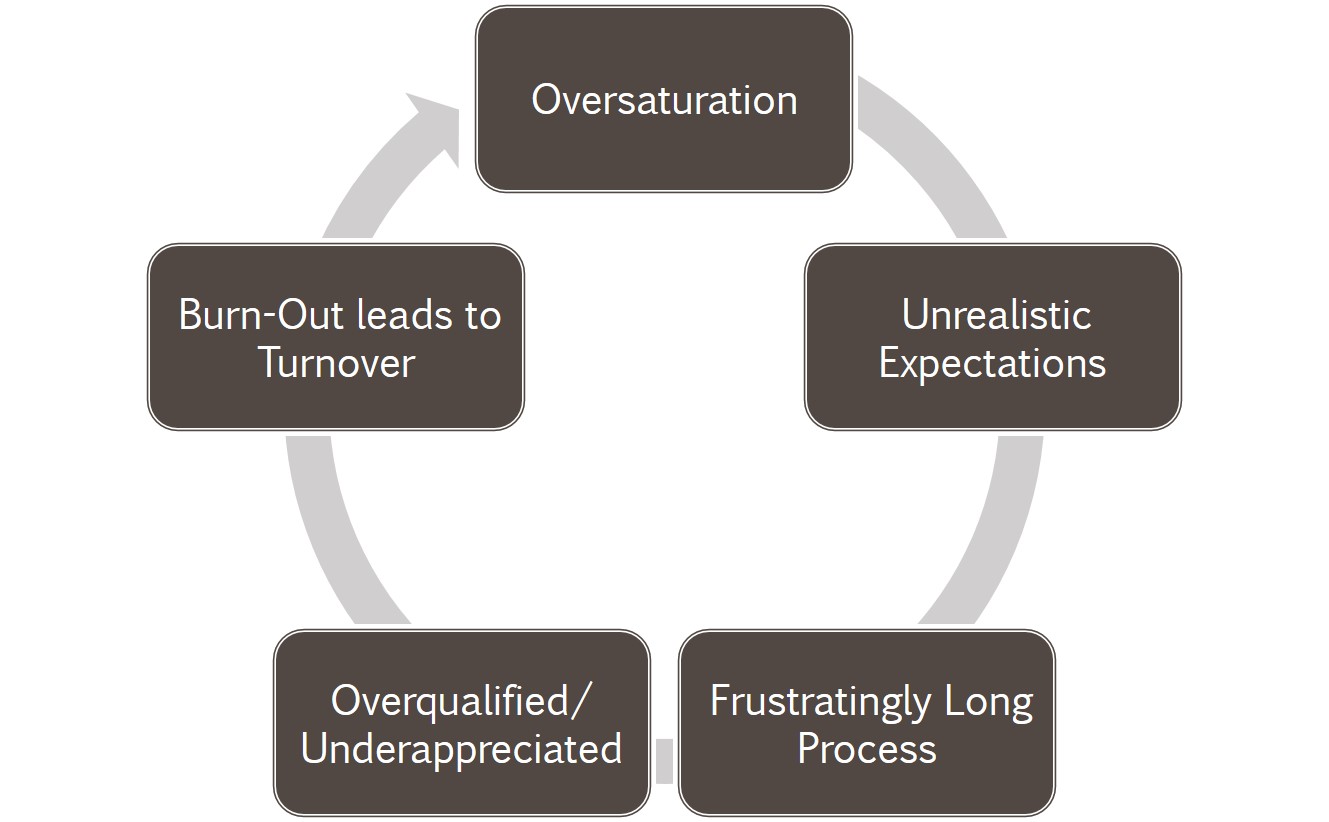
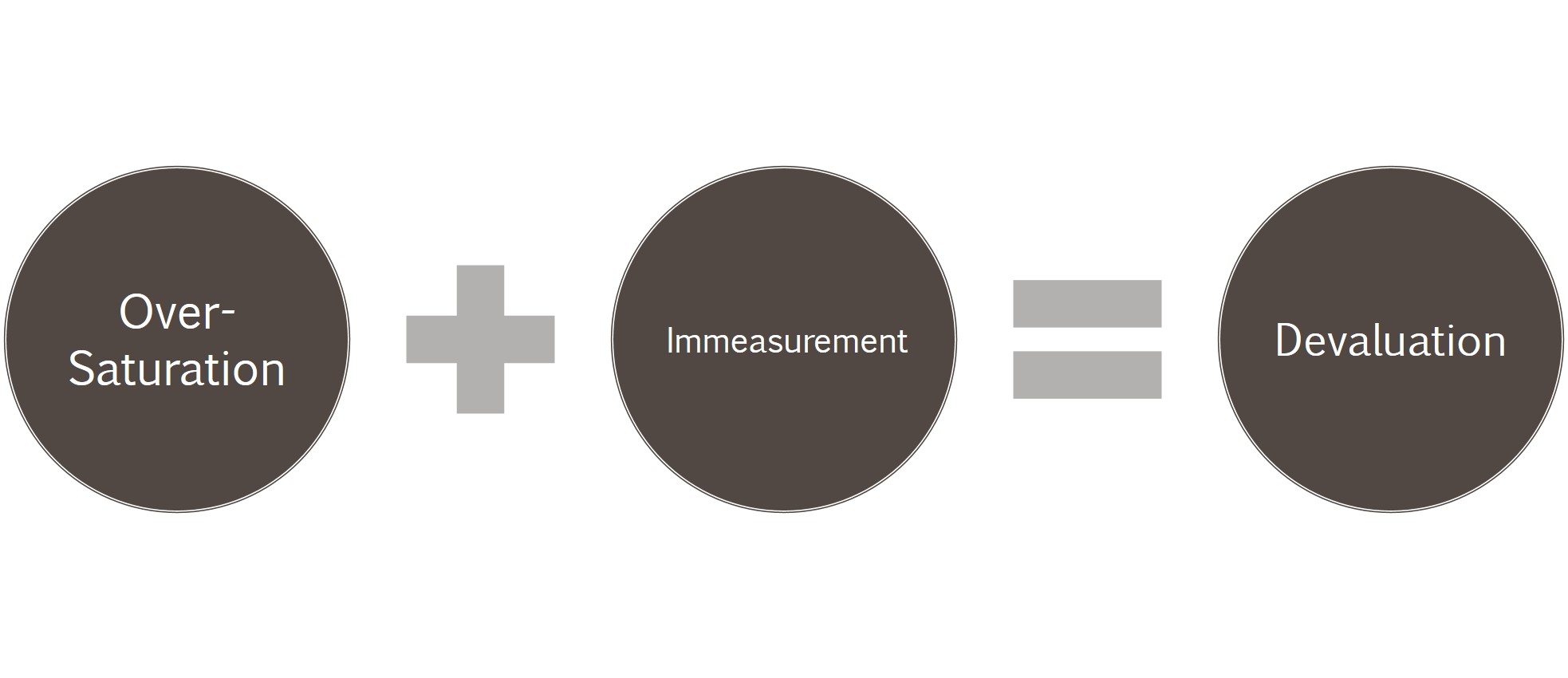
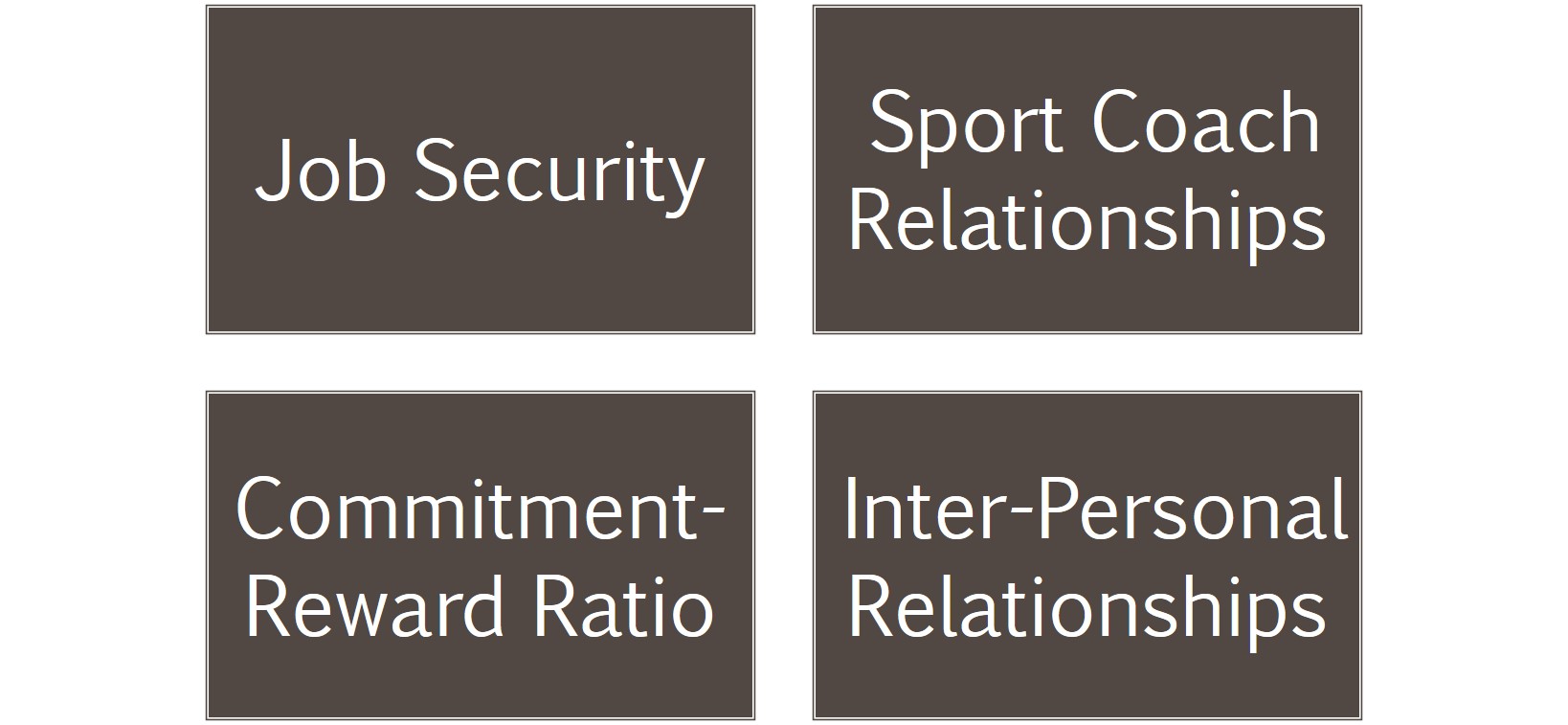
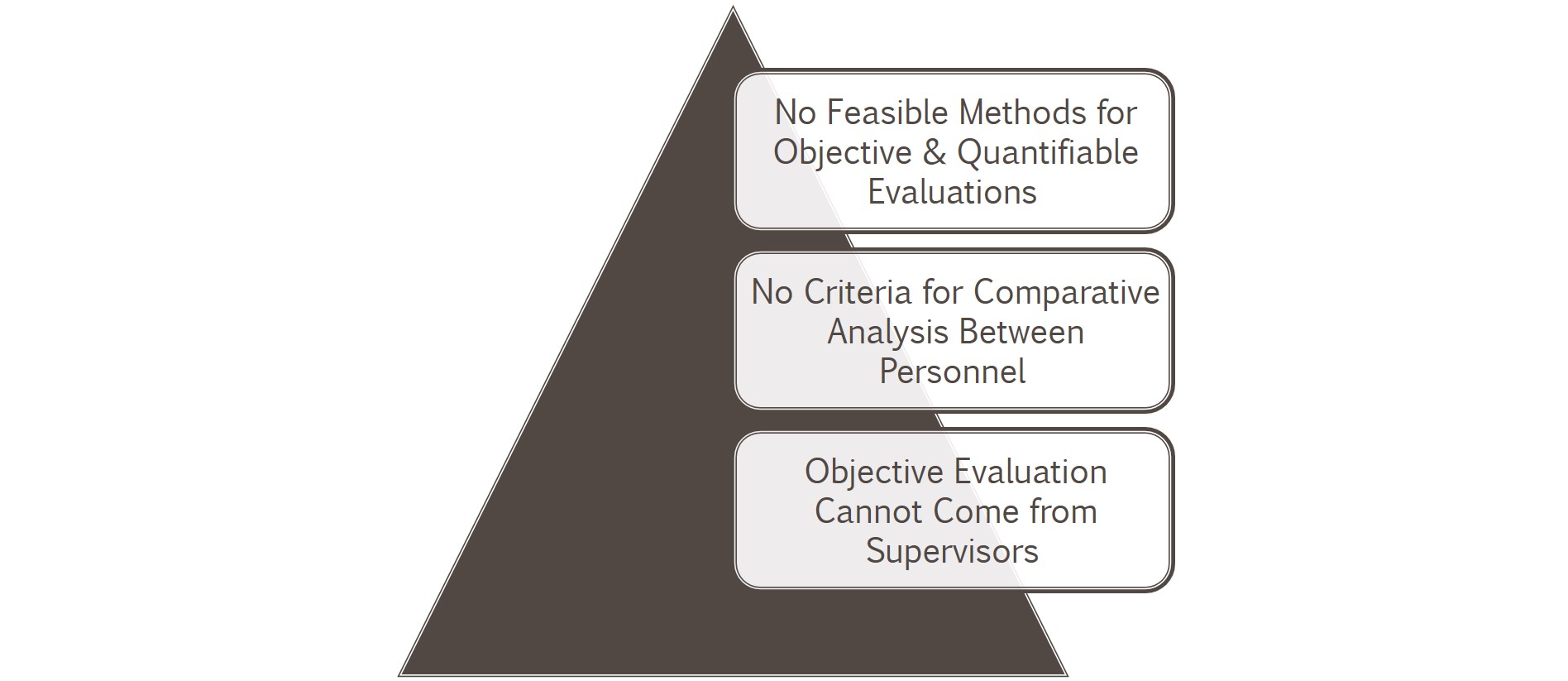
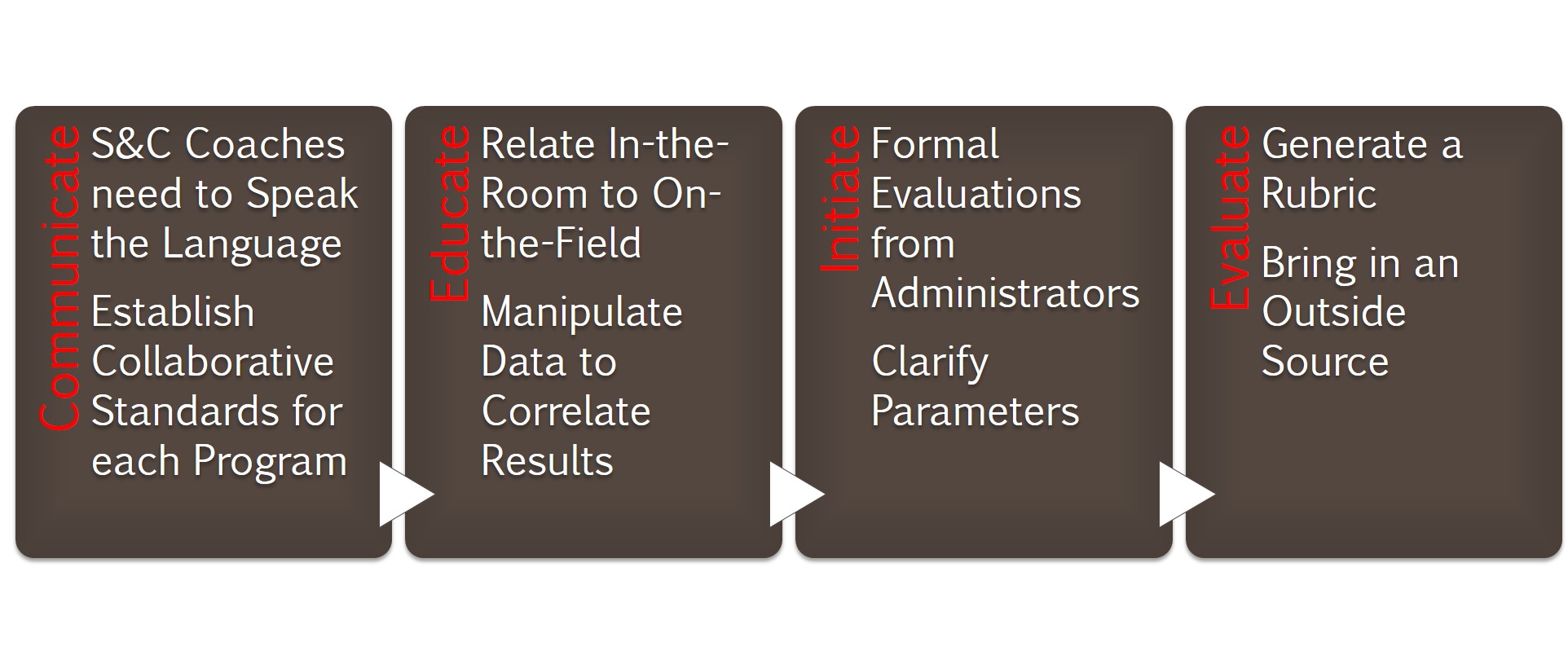

Your comments are extremely humbling. I can't express the gratitude I have for your words. It's an honor coming from you.
I hope that I never sound like a hypocrite when I write these kinds of articles. I most definitely didn't survive the profession and had to bail. I am becoming not so relevant in the coaching world, but as we have talked about before, I am desperately trying to provide some insight to a cut-throat profession.
I could never write any articles like these when I was coaching. I didn't have the time, the wisdom, the insight, or the courage to write about our industry. You and I have seen first-hand what the strength and conditioning field has done to men and women all over the country.
Thanks again Ashley. I still owe you a beer the next time you are in the states.
Always,
MJW
Thank you for the question and your feedback. Your sentiments are well thought-out and you bring up some points that I'm sure a lot of us overlooked. There are a few ways to look at this. I don't mean to oversimplify it, but lets look at the first question.
Can I ask why the strength coach should have to justify his worth more than any other staffer in an athletic administration?
I don't think experienced strength coaches feel they have to justify their worth... eventually. Humility can add a sense of self-efficacy to the mix. That only comes with evaluated experience. Your question in itself poses he problem. There are no quantifiable measures to justify the worth of a strength coach. There is no recruiting class, wins and losses, stats, etc. This job satisfaction falls back on the opinion of the sport coach and athletic director. Strength coaches spend a lot of time educating sport coaches and administrators exactly what they do and how it has an impact on the program. Most sport coaches have trouble connecting how certain exercises and training modalities carry over to the field. This leaves the strength coach "justifying" what they are doing and why they are more qualified than any other assistant on the staff to do so.
This leaves me with your point about anti-intellectualism. I think it is dismissive to assume sport coaches do not embrace strength coaches because they are threatened by the intellectual capacity of a typical strength coach. The problem lies in communication. As Bob Alejo has stated on the Sports Performance Podcast, "strength coaches have forgotten how to speak 'Coach". Some strength coaches don't even want to call themselves coaches anymore. They prefer physical preparation specialist, or whatever they come up with that extends their scope of practice. Being a dual football/ strength coach for 13.5 out of my 15 years of coaching, I know this first hand: Sport coaches are very concerned with loyalty. Alienating yourself as a strength coach from the staff for the sake of analytic is a mistake. Yes, you have to advocate for the player as the head coach's first two priorities are the 1.) program and 2.) team. I don't think the sport coach is threatened by data, but if the strength coach doesn't interpret that data in a manner that will help the program, the sport coach doesn't have time for it.
Remember, the strength coach is responsible for physical preparation. The sport coach is responsible for the mental, physical, technical, and tactical development of the entire program. The strength coach is still a coach. You can train a GA to collect data. Data is just a piece. Coaching is just about people and developing people means process.
You bring up so very interesting and valid points. But, we as strength coaches can;t get our feelings hurt because our bosses don't know what we actually do. So, it goes back to this: What qualities should the best strength coaches have. I still have never met anyone that has given me even one objective measure that separates a good strength coach for the average one.
From Spain, same situation on S&C coaches. we'll carry on!!
Thanks again
I really appreciate the kind words. I never wanted the article to be discouraging, but some of the issues have never really been talked about at length. I wish you the absolute best and please keep that passion. That in itself will determine success (however you define that) more than any other factor. As Dave says, "Passion Trumps Everything."
MJW
As professions mature and develop it's essential that, in this case Strength & Conditioning Coaches, move into senior administration positions to ensure that there is high level 'round table' discussion that considers the importance and impact of this profession.
Key questions can then be addressed, for example:
- What are the expectations for a Lead S & C and should the experience they've gained lend them to a high level of expertise (How is this defined and are they meeting this criteria)?
- Or can we replace him/her with a graduand with less experience but at a cheaper rate?
Key: Bring in trusted outside evaluators, be challenged and grow from it!
Have you analyzed the numbers for private school vs public school funding for strength coaches; pay, job satisfaction, job performances?
What about funding for strength coaches at the high school level; how many coaches are funded thru a private booster club vs public tax dollars? Is there a correlation between better records on the field at these schools vs coaches hired by an administrator or athletic director?
Do you have a private e mail address to share?